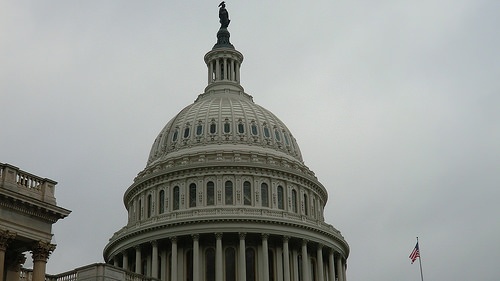While domestic climate politics in the U.S. and Canada generate hot air about the reality and urgency of climate change, climate science proceeds largely on its own pathways, and climate policies to reduce greenhouse gas (GHG) emissions are being proposed and developed by a wide variety of entities. On November 23 – often referred to as “Black Friday” by retailers and shoppers in the U.S., regardless of their attitudes about global warming – the U.S. government’s U.S. Global Change Research Program (USGCRP) delivered urgent recommendations for aggressive policies. This Fourth National Climate Assessment (NCA4) builds on last year’s Climate Science Special Report (which I wrote about here).
Read MoreAudit, Compliance and Risk Blog
United States Government Quietly Releases Dramatic New Recommendations For Combating Climate Change
Posted by Jon Elliott on Tue, Dec 04, 2018
Tags: Business & Legal, Environmental risks, Environmental, Greenhouse Gas, ghg, climate change
Many of the items that make their way into your home are designed with only one purpose in mind. After you’ve opened up a bottle of champagne, the cage and cork become destined for the landfill. Once you’ve eaten all of the fruit out of the colourful plastic mesh bag, it can’t be recycled and it’s pushed into the trash bin. You can sit around getting blue about all the waste that abounds or you can do what I do and give those items a second chance at life.
Read MoreTags: Business & Legal, Environmental risks, Environmental, Hazcom, climate change, sustainability
Administration Proposes Massive Cuts in EPA for Fiscal Year 2019
Posted by Jon Elliott on Tue, Mar 27, 2018
On February 12, the Trump Administration issued its budget proposal for federal Fiscal Year (FY) 2019 (October 1, 2018 through September 30, 2019), subtitled “An American Budget”. The proposal included a 34% cut in the Environmental Protection Agency (EPA) budget, from $8.2 billion in FY 2016 (stable in FY 2017 and FY 2018 under a Continuing Budget Resolutions rather than a fully-new federal budget), to $5.4 billion for FY 2019, with corresponding personnel cuts from 15,408 full-time-equivalent employees (FTE) to 12,250. (these are numbers for EPA in the government-wide budget from the Office of Management and Budget (OMB); the stand-alone budget document on EPA’s website cites $6.1 billion).
Read MoreTags: Business & Legal, Environmental risks, Environmental, EPA, climate change
EPA Withdraws “Once in Always in” Policy For Major Air Toxics Sources
Posted by Jon Elliott on Tue, Mar 06, 2018
The Clean Air Act (CAA) directs the Environmental Protection Agency (EPA) to define “hazardous air pollutants (HAPs)” that may pose acute health hazards, and to impose regulations to reduce those hazards. Controls include permits for “major sources” of HAPs based on “Maximum Achievable Control Technologies (MACT),” and lesser controls for non-major “area sources.” Since 1995, EPA policy has been that every emission source that met major source criteria at the time a MACT became effective is “once in, always in” and cannot requalify as a less-regulated area source even if it accepts legally binding controls that reduce its “potential to emit.” On January 25, 2018 EPA reversed that decades-old policy.
Read MoreTags: Environmental risks, Environmental, EPA, Greenhouse Gas, ghg, climate change, CAA, mact
New US Climate Science Special Report Documents Climate Change
Posted by Jon Elliott on Tue, Nov 28, 2017
Although many agencies and officials in the Trump administration downplay or deny human contributions to climate change, a major new government report accepts that proposition, and documents its extent. On November 5, the U.S. Global Change Research Program published its Climate Science Special Report, which will serve as Volume 1 of the U.S. Fourth National Climate Assessment (NCA4). The Program is a group of 13 federal agencies with relevant authority and expertise, with the development of the NCA4 overseen by the National Oceanic and Atmospheric Administration (NOAA). The Program was established by the Global Change Research Act (GCRA) of 1990, to “assist the Nation and the world to understand, assess, predict, and respond to human-induced and natural processes of global change.” As summarized in the Executive Summary to the Report:
Read MoreTags: Environmental risks, Environmental, EPA, climate change
Government Accountability Office Encourages Federal Consideration of Climate Change Costs
Posted by Jon Elliott on Tue, Nov 14, 2017
As I’ve discussed in recent blogs, President Trump’s executive agencies, including the Environmental Protection Agency (EPA), are dramatically reducing federal attention to “climate change.” Obama-era initiatives are being terminated or reversed, and planning and communication are being reduced or eliminated. (For example, I noted in my recent discussion of EPA’s draft Strategic Plan, here, that the draft does not mention the phrases “climate change” or “greenhouse gas” even once).
Read MoreTags: Environmental risks, Environmental, EPA, climate change
Businesses Using “Science-Based Targets” to Reduce Greenhouse Gas Emissions
Posted by Jon Elliott on Thu, Oct 26, 2017
The Paris Agreement anticipated that sub-national governments and private organizations would contribute to global progress, by meeting and often exceeding national requirements (I wrote about formal United Nations programmatic expectations here).
One of the non-governmental efforts is the Science Based Targets Initiative, through which individual companies can set GHG-reduction goals. At latest report, over 300 companies participate.
What is the Science Based Targets Initiative?
The Initiative is a multi-sector collaboration among the following international organizations: CDP (formerly called the Carbon Disclosure Project), World Resources Institute (WRI), the World Wide Fund for Nature (WWF; formerly World Wildlife Fund), and the United Nations Global Compact (UNGC). Participation in the Initiative is also identified as one of the commitments under the We Mean Business Coalition, which is another international business initiative. The Initiative defines “science-based targets” by reference to the Initiative’s effort to support the 2o C target (which the Initiative refers to as the “2°C pathway”):
Read MoreTags: Health & Safety, Environmental risks, Environmental, EPA, Greenhouse Gas, ghg, climate change
International Business Group Recommends Climate-Related Financial Disclosures
Posted by Jon Elliott on Tue, Aug 15, 2017
As governments worldwide consider expanding requirements to manage greenhouse gas (GHG) emissions and moderate climate change, private sector groups are mobilizing to craft voluntary reporting and management activities – which might shape or even avoid future governmental mandates. In May, the 32 international business leaders on the Financial Stability Board’s (FSB’s) Task Force on Climate-related Financial Disclosure issued recommendations for climate-related financial disclosures by public companies worldwide. The Task Force reported these recommendations to the Group of 20 (G-20) leaders at last month’s meeting in Hamburg – the G-20 finance ministers and central bankers had asked FSB in 2015 to commission the Task Force.
Read MoreTags: SEC, Greenhouse Gas, ghg, climate change
On May 23, the Trump Administration issued its budget proposal for federal Fiscal Year (FY) 2018 (October 1, 2017 through September 30, 2018), subtitled “A New Foundation for America’s Greatness”. The proposal includes a 31% cut in the Environmental Protection Agency (EPA) budget, from $8.2 billion in FY 2016 (stable in FY 2017 under a Continuing Budget Resolution rather than a fully-new federal budget), to $5.7 billion for FY 2018, with corresponding personnel cuts from 15,376 full-time-equivalent employees (FTE) to 11,611. Although presidents’ annual budget proposals are rarely enacted in full, they do mark the formal start of annual considerations of federal policies and staffing. It’s therefore useful to review how President Trump and EPA Administrator Pruitt hope to proceed.
Read MoreTags: Environmental risks, Environmental, EPA, climate change
What Will U.S. Withdrawal From Paris Accord Mean For Climate Change?
Posted by Jon Elliott on Tue, Jun 20, 2017
On June 1, President Trump announced that the United States will withdraw from the Paris Accord on climate change, and then seek to “begin negotiations to reenter either the Paris Accord or a really entirely new transaction on terms that are fair to the United States, its businesses, its workers, its people, its taxpayers.” Most of the strong reactions I’ve seen – pro and con – express only superficial approaches to the implications of the decision. In this note I’ll dig a little deeper, and propose two different less-superficial ways to watch these implications play out.
Read MoreTags: Environmental risks, Environmental, EPA, climate change










